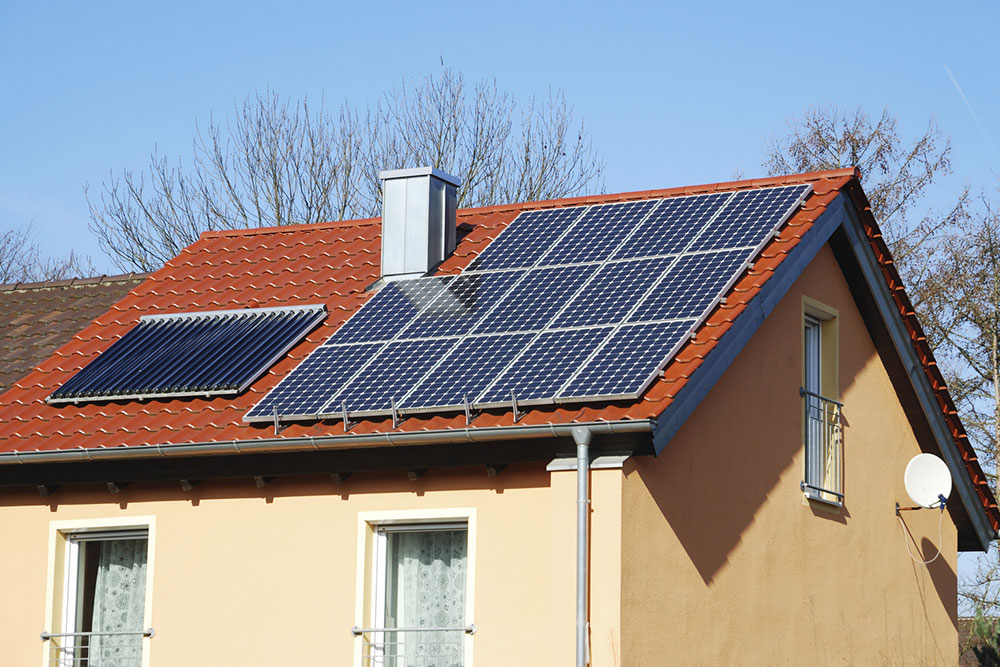
Guide to solar panel kits
The significance of using solar power has recently increased among homeowners, as it can reduce your electricity bills. Investing in a solar panel kit gives you almost everything you need to install a solar power system in your home. DIY solar kits are widely available and have different features, capacities, and wattage configurations. You can choose the type of solar panel kit based on your home type and electricity needs.
Types
Mentioned below are the different types of solar kits for homes:
- Grid-tied solar panel kits
The grid-tied solar kit contains solar panels, a grid-tied inverter, and a mounting system. A grid-tied solar power kit is designed to work parallel to your existing power grid. This solar panel kit uses solar energy as the main power source while connected to the electrical grid. The benefit of this type of solar panel kit is that the excess energy can be sent back to the electrical company through net metering. This system can balance the daytime energy costs with solar power, which is a great way to save money on electricity bills. - Off-grid solar panel kits
The off-grid solar panel kit collects the energy from the sunlight and converts it into electricity. It is then stored in a battery bank as a reliable power source. The off-grid solar panel system can provide power to your household appliances and is used in places where grid power is unreliable. A charge controller, battery, and inverter are the components of an off-grid solar panel kit. - Hybrid solar panel kits
A hybrid kit utilizes the grid and stores the extra power in a storage unit. Hybrid solar panel kits are a combination of grid-tied and off-grid solar systems. This solar power kit uses power from the solar panels, the battery, and your home’s existing grid. Hybrid solar kits are less expensive than off-grid solar panel kits and are more effective for power generation than other systems.
Solar panels are one of the essential components of solar panel kits, and while choosing a solar panel kit, you also should know about the type of solar panel. The different types of solar panels can be classified by design and material.
Classified by design
Here are the types classified by design:
- Rigid solar panel
This type is one of the most widely used types of solar panels. These panels are typically installed on rooftops or on the ground. Rigid solar panels are thick, heavy, and sturdy, made of standard photovoltaic cells, and commonly used for home solar installations. - Portable solar panel
Portable solar panels are lightweight panels that you can carry wherever you go to connect small appliances. They usually come in a foldable design for easy transportation. This type of solar panel is ideal for camping, boating, and other off-grid applications. - Flexible solar panel
Flexible solar panels, also known as thin-film panels, are light and easy-to-install solar panels. These solar panels can bend and adjust on curved surfaces and are ideal for curved roofs or tents. Though they are less efficient than rigid solar panels, they are a preferred choice for specific applications due to their flexibility.
Classified by material
Here are the types classified by material:
- Monocrystalline panel
These panels are made from a single silicon, allowing greater electron flow and a high efficiency rate. These panels have a uniform dark color, are space-efficient, and are the most expensive panels on the market. The panels are capable of performing even at low levels of sunlight. - Polycrystalline panel
Polycrystalline panels comprise several smaller crystals that are melted to give a distinct bluish appearance. These panels require longer to produce the same amount of power as monocrystalline panels. They are less expensive and ideal for those on a budget. - Thin-film panel
Thin-film panels are made by layering photovoltaic materials over each other. These panels are lightweight, more flexible, and bendable. These panels are best suited for large rooftop areas or spacious open grounds. Though they have the lowest energy efficiency and are the cheapest on the market, they are the future of mobile solar technology.
Conclusion
Make your home greener by using innovative and user-friendly DIY solar panel kits. When buying a solar panel kit, choose one that has quality components that are compatible with each other for a successful installation. Enjoy this form of renewable energy while saving money on expensive installation costs and reducing electricity bills. Using sustainable energy is good for your home and the environment.




